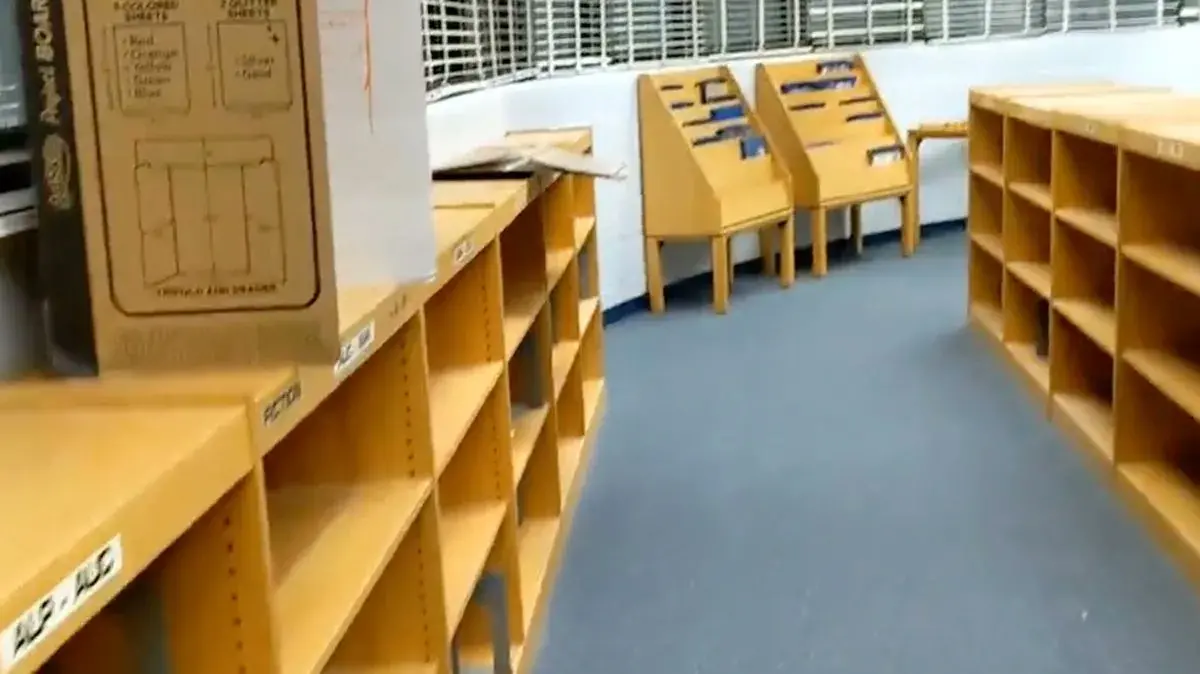Tell the New York City Board to Corrections Not to Restrict Book Deliveries to Prisoners
By Moira Marquis
In Texas, Kwaneta* is denied a copy of Good Housekeeping magazine because mailroom staff say an ad for adult diapers is “sexual content.” When the librarian comes to her cell in solitary, only religious books are available because the librarian says she’s been called to save Kwaneta’s ‘heathen soul.’
In Michigan, Daniel is denied a copy of Variations on an Undisclosed Location (a PEN America essay collection of by incarcerated writers) because staff say his featured essay, “The Unintended Consequences of Retributive Justice,” could gain influence among prisoners and foment an uprising.
The Kentucky prison where Derek Trumbo is incarcerated has stopped all books from entering the facility unless they are individually inspected by a committee, whose names are not publicly known. Although they have not directly said so, it is likely that Trumbo’s essay “Every Story Needs Hope” featured in The Sentences that Create Us: Crafting a Writer’s Life from Prison (Haymarket Press 2022) contributed to the policy that effectively denies all books.
Limiting access to reading and writing in prisons is all part of the effort to foreclose community, restrict potential interactions, and deny that incarcerated people are still members of society whose voices should be heard and merit access to information as we all do. Reading is especially essential for people inside prisons. A person who wrote the New York City nonprofit Books Through Bars, which sends free books to people incarcerated in all NY jails and prisons wrote: “My bipolar depressions would have made me end my life long ago save for the books you all provided. They helped me to escape…gave me hope that I’d be able to do something positive with the end of my life.”
We should push back against carceral censorship because accepting that some people can be legitimately denied access to books and information is the first step to accepting we can all be denied the freedom to read and free expression.
As Stanley Milgram’s controversial experiment demonstrated, people who accept first steps like this more easily slide into full acceptance of authoritarianism. The first step may seem slight, irrelevant, harmless even. Yet, it’s important to note that some participants in Milgram’s experiment recognized the injustice of it right away and refused to participate and others started to disobey as they became more uncomfortable with the researcher’s actions. This is what we all need to do in the wave of censorship nationwide and in prisons. Voice our dissent. Register our disapproval. Push back against policies that restrict our right to sharing idea.
While the limiting of books to incarcerated people may seem far removed from the daily lives of most people, the foundational logic that validates information control is beginning to pervade American culture outside of prisons. The idea that books and ideas are dangerous and threaten the security and order of American society is finding a home in schools and campuses across the country through laws and local campaigns being pushed by conservative groups.
With more widespread cultural approval, the New York Department of Corrections wants to take censorship a step further. It has asked the New York Board of Corrections (BOC) for mail and package variances that would stop all paper correspondence at Rikers Island Jail and limit books to only those delivered only by Amazon and other big retailers.
The BOC will accept public comments regarding this policy request at their next hearing on Tuesday, March 14 at 1pm. People can attend virtually as well as in-person at 125 Worth Street, Second Floor Auditorium, in New York. All New Yorkers are encouraged to make public comments through either email or voice message at either [email protected] or 212-669-7900.
These variance requests would limit personal correspondence to digital scans and reading material to what is available on tablets. This would be true of books, too. The NYDOC argues this variance is necessary in order to prevent illegal drugs from entering the prison. They claim they care about the people at Rikers and don’t want them dying from drug overdoses. While this claim has been widely debunked, we should also recognize how such a shift will enable greater censorship of incarcerated people–further isolating them and heightening information control as a legitimate carceral practice, which arguably gives censorship more legitimacy in our culture at large.
Recently, men in solitary in Texas went on hunger strike. Hunger strikes have been used at Rikers as recently as January 2022. They are the last resort of people whose voices are silenced. News of the Texas hunger strike was muzzled by holding all mail communication with people inside–not only those on strike. A woman I communicate with, whom I will call ‘V,’ was denied phone calls to her family. She told me:
The men in Texas solitary confinement are on a hunger strike. All of the sudden the State Classification Committee wants to give a phone call “Special Review”… It was scheduled for today but the lady said she forgot and will reschedule. I hope so because my youngest daughter, who’s fifteen, really needs to talk to me. The anniversary of her fathers death (1/25/22) is approaching…
V’s email was also stopped. I received two emails written from her in January in the middle of February. She said she felt she was losing it not being able to contact anyone. She tried handwriting letters and sent me four. I’ve received none of them. Neither have other people I know who also communicate with V. Texas officials were also holding paper mail in order to prevent a more coordinated hunger strike against conditions in Texas prisons. Just today, V told me:
They brought me a plastic bag supposedly my mail. As of today, the hunger strike has officially ended. The last 10 men have been on it for 7 weeks. The bag contents are a muddled mess with a few outgoing letters and contents of some letters in the wrong envelopes. A mess.
As bad as this censorship is, digitizing enables greater control than physical mail. It can be scanned for content by computer software. It can be held in the limbo of cyberspace. E-readers similarly censor. The only content available has been approved by the vendor in collaboration with DOC. Tablets also only have content that has already been digitized. While books by major publishers are increasingly available as digital editions, not all independent presses create digital versions of books and many older works are not available.
The belief that free expression is justly curtailed in the name of safety in prisons is an approach that cannot be allowed to stand. If we accept that ideas should be limited in the name of some peoples’ safety then we can more easily accept that children should not have access to books, that curricula should be sanitized. It puts some people in control of what everyone else can think, feel, learn and understand.
Undergirding censorship is the truth that ideas are powerful. Censorship, as Fahrenheit 451 pointed out so eloquently 80 years ago, is the limiting of what we can feel, think and imagine. There are so many intersecting crises in our current social order we desperately need to be able to consider alternatives and capacious reading is at the root of our ability to do so.
The foreclosure of alternatives to present day ills might be at the root of the NYDOC’s mail variance request, which has coincided with calls to reevaluate the shuttering of Rikers in just over two years. Trying to keep things the same by denying the circulation of alternative ideas is a violence we can’t accept. We need more, not fewer, ideas. What alternatives exist to the carceral state? How can we create a more just society? The answers are in books.
Instead of foreclosing creativity, innovation and leaving people inside isolated and with no opportunity to learn and grow, we should encourage more books, more ideas in prisons as we should everywhere.
NOTE: Some incarcerated people did not want their last names used for this piece.
Marquis is the Freewrite Project senior manager in the Prison and Justice Writing program at PEN America. She taught writing in high schools and colleges for many years. She organized Asheville Prison Books and co-founded Saxapahaw Prison Books. She has a PhD in Literature.










